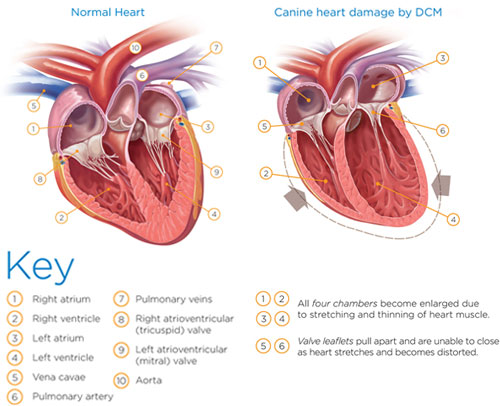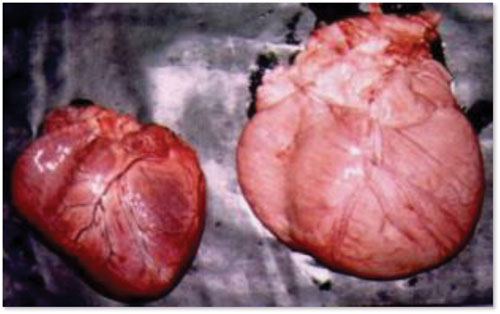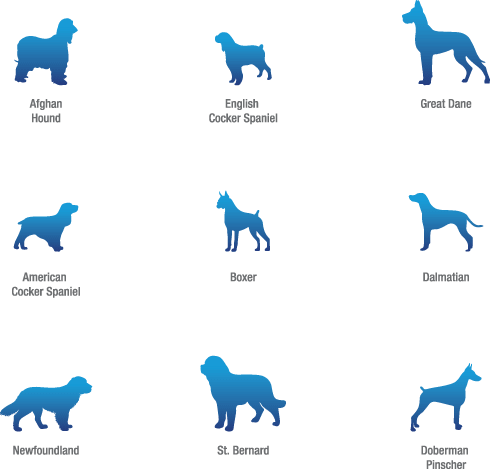 Dilated cardiomyopathy (DCM)
Dilated cardiomyopathy (DCM)
Overview
DCM is the second most common cause of canine congestive heart failure (CHF), following atrioventricular valvular insufficiency (AVVI).1 DCM is a disease of the heart muscle that causes loss of myocardial contractility. The heart becomes weakened and enlarged and cannot pump blood efficiently, resulting in decreased cardiac output and tissue perfusion.

DCM can have a quick onset and progresses rapidly in dogs. The preclinical disease phase can vary from months to years, but the disease progresses more quickly than AVVI. Treatment with pharmaceuticals is the most effective intervention and focuses on controlling preload, afterload, and contractility.1

Breeds at risk for DCM

DCM primarily affects middle-aged, and large- or giant-breed dogs. Breeds most susceptible to DCM include Afghan Hound, American Cocker Spaniel, Boxer, Dalmatian, Doberman Pinscher, English Cocker Spaniel, Great Dane, Newfoundland and St. Bernard.1,2
References:
1. O’Grady MR, Minors SL, O’Sullivan ML, Horne R. Effect of pimobendan on case fatality rate in Doberman pinschers with congestive heart failure caused by dilated cardiomyopathy. J Vet Intern Med. 2008;22(4):897–904. 2. Ware WA. Cardiovascular Disease in Small Animal Medicine. Ames, IA: Blackwell Publishing Professional; 2007.

 VETMEDIN is a registered trademark of Boehringer Ingelheim Vetmedica GmbH,
licensed to Boehringer Ingelheim Vetmedica, Inc.
VETMEDIN is a registered trademark of Boehringer Ingelheim Vetmedica GmbH,
licensed to Boehringer Ingelheim Vetmedica, Inc.